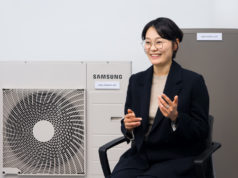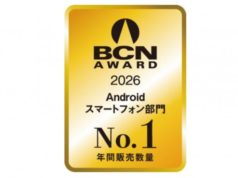
- Register
- Login
36°C
- Article
- . (0)
- Related content
Artificial intelligence applications are not only driving scientific and technological developments, but also fueling the replacement of servers, prompting HPE, a spin-off from HP, to galvanize its sales momentum in Taiwan with new server models. HPE is expected to regain the title as the top brand in Taiwan’s server market in 2018, according to industry sources.
HPE is the leading server brand in the world, scoring a 23.6% share of the global market in 2016, according to IDC. But in Taiwan, the company, though having maintained sales championship in the market for years, lost the title to Lenovo in 2016, when the China-based brand became a winning bidder of a big server order from Taiwan Semiconductor Manufacturing Company (TSMC). As Lenovo failed to renew order from TSMC, after it expired in July 2017, HPE is very likely to regain the crown, market watchers said.
Optimistic about the overall sales prospects for servers, HPE Taiwan chairman Jon Wang said that extensive AI applications will be accompanied by huge demands for computing support, which, in turn, will fuel the need for servers. He added that IoT and Industry 4.0 will require cutting-edge-computing support, serving as another growth engine for servers.
Wang said some people are concerned that virtualization technology could reduce demand for server hardware, with one virtualized machine able to replace 3-10 servers, but such worries have proved groundless. He continued that the impact on regular server makers from those engaged in producing cheaper white-box servers is also easing steadily.
Wang continued that white-box servers, mainly sold to cloud customers, are gradually losing market ground, due largely to insufficient after-sales service from suppliers and weak software support by customers themselves. Most customers, he said, cannot maintain the huge IT talent pools needed to run these servers as done by Google or Amazon.
To cash in on the increasing demand for servers amid rapid development of AI applications in Taiwan, HPE has released a series of new server models. For instance, it unveiled a new-generation ProLiant server on August 9, which HPE claimed is the safest industrial server available. The server can prevent hackers from attacking computing systems through a close combination of HPE chips and remote-control iLo firmware, according to Kuo Yu-sheng, product manager of HPE Taiwan.

Jon Wang, chairman of HPE Taiwan
Photo: Shihmin Fu, Digitimes, August 2017
-
Compal eyes 50% revenues from non-PC businesses by 2020
IT + CE | 9h 1min ago
-
Acer to merge affiliate eDC into BYOC group
IT + CE | 9h 6min ago
-
TSMC July revenues fall to 3-month low
Bits + chips | 10h 30min ago
-
Motherboard players see improved results in July
Before Going to Press | 8h 57min ago
-
Demand for upstream passive component materials rising
Before Going to Press | 9h 55min ago
-
Shanghai Huahong renames fabs
Before Going to Press | 10h 2min ago
-
Systex nets NT$2.34 per share for 1H17
Before Going to Press | 10h 40min ago
-
Phison posts record 2Q17 profit
Before Going to Press | 10h 42min ago
-
PWM IC firm GMT net profits fall 8.4% in 2Q17
Before Going to Press | 10h 42min ago



- China AMOLED panel capacity expansion forecast, 2016-2020
This Digitimes Research Special Report examines the China AMOLED industry, focusing on the expansion capacity of the makers, the current implementation plans of major smartphone vendors in the market and the technological hurdles faced by the China makers.
- Taiwan server shipment forecast and industry analysis, 2017
Digitimes Research estimates that revenues from sales of server motherboards, servers, storage systems and related network system equipment by Taiwan-based vendors reached NT$555.8 billion in 2016 and the amount is estimated to grow 5.9% on year in 2017.
- Global notebook shipment forecast, 2017 and beyond
This Digitimes Special Report examines key factors in the notebook industry, including products, vendors and ODMs, that will affect total shipments in 2017 and through 2021.








